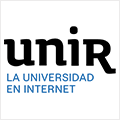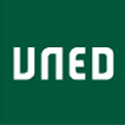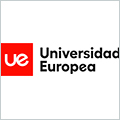Bachelor in Cyber Security with Digital Forensics - Grado en Ciberseguridad e Informática Forense
-
Imparte:
-
Modalidad:Presencial
-
Precio:Unlimited number of Scholarships available for next academic year
UK/ROI/Channel Islands: £9,250 per year
International: £18,800 per year
Foundation year: £9,250 (UK, ROI & CI) £18,800 (Int´l) -
Comienzo:Septiembre 2026
-
Lugar:Bournemouth
Reino Unido -
Duración:4 Años
-
Titulación:BSc (Hons) Cyber Security with Digital Forensics
Interested in using ethical hacking to identify security problems, and developing solutions that fix them?
Foundation Year: We have a Foundation Year option for students who do not meet the entry requirements for the degree course. This additional year of study will give you a grounding in the technical skills required for this course, building your confidence, knowledge and skills for further study. After successful completion of the Foundation Year, you will progress to the full degree. If you apply to study the full degree and do not meet the academic entry requirements, our admissions team may consider your application for the Foundation Year and notify you accordingly.
This course requires 104–120 UCAS tariff points including a minimum of 2 A-levels or equivalent. We are happy to consider a combination of qualifications and grades to meet the overall tariff, for example A-levels A*CC, ABC, BBB or BCC, BTECs DDM or DMM. You can use the UCAS calculator to see how your qualifications equate to UCAS tariff points.
If English is not your first language you´ll need IELTS (Academic) 6.0 with a minimum 5.5 in each of the components or equivalent.
Develop the versatility and personal qualities to manage, implement and assess the security of business activities in a global context
Build and improve your applied technical skills to weaponise technology to prevent or respond to security incidents in any organisation
Engage in a series of practical, industry-focused tasks and co-participate in a range of research projects, not only with BU staff but experts from other institutions and industries in the UK and the world
Gain valuable work experience on your placement if you choose to take one
You’ll be qualified to work as an IT security professional in all sectors where cyber security plays a critical role
Typical graduation roles include police digital forensics investigator, digital forensics consultant, pen tester, information security analyst or cyber security analyst
FOUNDATION YEAR OPTION
Academic Study Skills for Engineering and Technology
Introduction to Computers
Mathematics for Engineering and Technology
Introduction to Information Systems Analytics
Introduction to Programming
Foundation Year Engineering and Technology Project
YEAR 1
Computer Fundamentals – understand the concepts and terminology of computing, networking, communications, security, and virtualisation.
Mathematics for Computing – this unit will equip you with the mathematical knowledge for modelling and solving real-world computing problems.
Programming – develop the skills and understanding to implement software solution to different problems whilst gaining hands-on experience in programming and testing.
Network Essentials – learn about common network hardware, as well as the terminology and basic concepts of networking.
Introduction to Cyber Security – find out about fundamental cybersecurity concepts, tools and techniques in a team approach.
Elective unit
Computing and Society – learn about mapping computer techniques, concepts and principles in line with sustainability.
YEAR 2
Ethical Hacking – develop skills in ethical hacking, and associated security techniques and practices.
Software Engineering – learn about the theory and practice of software engineering such as the software development process.
Security Operations (SecOps) – gain the skills to detect security breaches and effectively respond via an understanding real-time security monitoring and data feeds providing security intelligence.
Network and Cyber Management – acquire the principles and practices of network configuration and management needed for state-of-the-art computer network infrastructure.
Technological Innovations in Cyber Security – building on previous programming knowledge, you will learn about uses of emerging technologies and how to develop cyber security solutions in a team approach.
Elective unit
Software Business – gain a deeper understanding of the unique aspects of software business, the various business models and innovations. Suited to those interesting in setting up a software company.
PLACEMENT YEAR
Although you will be enrolled onto the four-year degree, you can opt out of the placement year. However, the placement year offers you a chance to gain experience and make contacts for the future. You’ll complete a minimum 30-week industrial work placement which can be carried out anywhere in the world.
FINAL YEAR
Digital Forensics – this unit provides you with the skills, techniques and technologies necessary to conduct a digital forensic investigation, building on previous knowledge.
Human Computer Interaction – gain an understanding of the role of Human Factors (HF) and integration of its elements into the development of complex socio-technical systems.
Individual Project – the Individual Project is an opportunity to pursue a topic of your choice. You’ll identify a problem and then select and implement a solution to solving that problem.
Optional units
Digital Innovation and Transformation – learn the skills, techniques and technologies that are necessary to develop a digital portfolio based on digital transformation in business innovation efforts.
Systems Development – gain a critical understanding of the design, development and deployment of enterprise grade applications to allow organisations to scale their IT provisioning in an agile way.
Data Visualisation and Storytelling – develop the skills of data/information visualisation and visual analytics so that you can design efficient and effective data visualisations.
Software Quality Assurance.- learn about software quality assurance (SQA) and the techniques for appraising software quality so that you can construct software to the required quality.
Please note that option units require minimum numbers in order to run and may only be available on a semester by semester basis. They may also change from year to year.
Elective units
Digital Futures – drawing from technical, legal and social disciplines, learn about the role of digital technology in society and how it affects the individual.
Police Forensics Investigator
Forensics Consultant
Security Adviser for Business Continuity
Information Security Analyst
Security Systems Analyst.




